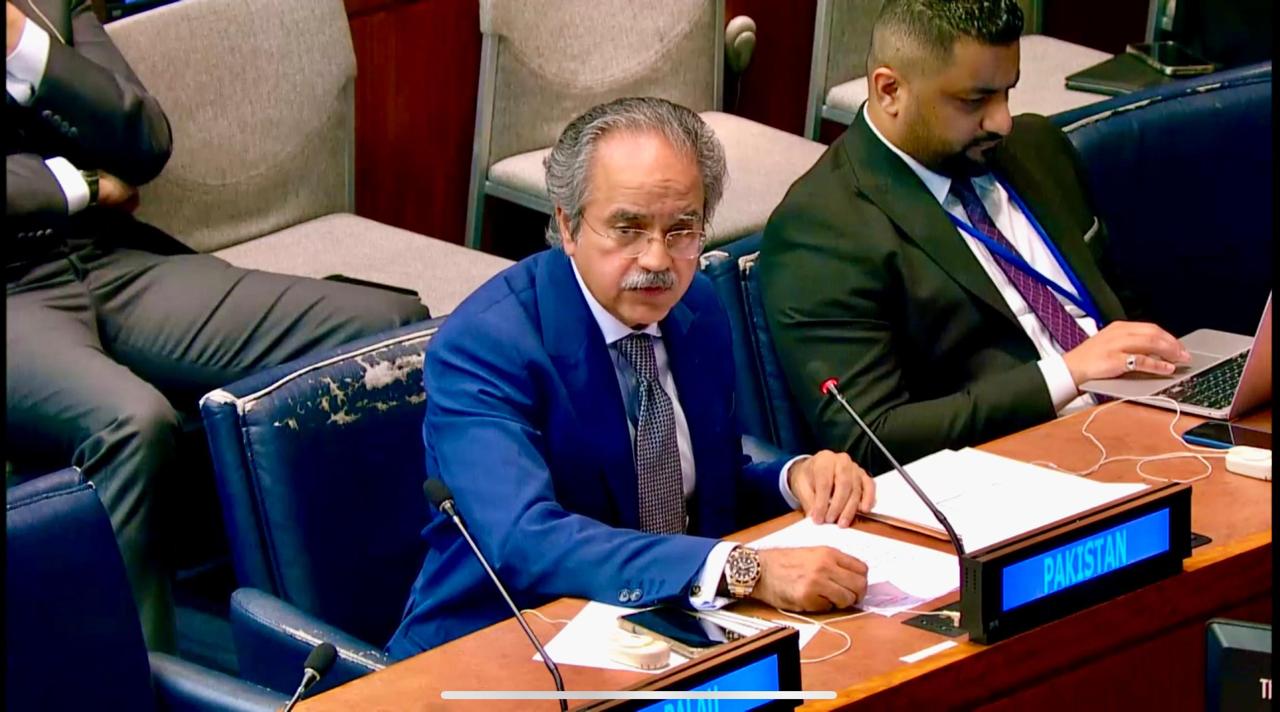Mumtaz Hussain
UNITED NATIONS: Pakistan has called on the United Nations to fulfill its founding promise by ensuring the right to self-determination for the peoples of Jammu and Kashmir and Palestine, describing the issue as a test of the international community’s conscience.
Addressing the Special Political and Decolonization Committee during the 80th Session of the UN General Assembly, Pakistan’s Permanent Representative to the UN Ambassador Asim Iftikhar Ahmad said both territories remain under foreign occupation, in violation of international law and UN resolutions.
The ambassador stated that the right to self-determination is the cornerstone of the UN Charter and must be realized for all peoples still denied their freedom.
Turning to the situation in Indian Illegally Occupied Jammu and Kashmir (IIOJK), he highlighted that the dispute is one of the oldest unresolved items on the UN agenda. He reaffirmed that the final status of the region must be decided through a UN-supervised plebiscite, in accordance with the aspirations of the Kashmiri people and relevant Security Council resolutions.
He accused India of evading its international obligations for more than seven decades through repression, deception, and brute force, noting that the region has become one of the most heavily militarized in the world, with 900,000 troops deployed.
Ambassador Ahmad condemned what he described as widespread human rights violations, including extrajudicial killings, enforced disappearances, arbitrary detentions, and collective punishment. He said India’s actions since August 5, 2019, aimed at revoking Kashmir’s special status, amount to an attempt to annex the disputed territory in defiance of UN resolutions.
He further warned that India’s settler-colonial agenda seeks to alter the demographic composition of Kashmir, calling it part of a wider enterprise rooted in extremist Hindutva ideology, religious intolerance, and exclusion.
Praising the resilience of the Kashmiri people, he stressed that lasting peace in South Asia cannot be achieved without resolving the Kashmir dispute. He emphasized that peace cannot be built on injustice and denial of rights.
The ambassador also drew attention to the ongoing humanitarian crisis in Gaza, condemning the destruction of communities and the killing of civilians. He described these actions as deliberate crimes committed in violation of international humanitarian law and reiterated Pakistan’s stance that occupation must end. He said that words do not suffice to describe the gravity of the situation.
Welcoming recent diplomatic consultations led by U.S. President Donald Trump with Arab and OIC leaders, Ambassador Ahmad expressed hope for a credible political pathway toward Palestinian statehood. He reaffirmed Pakistan’s support for an independent, viable, and contiguous State of Palestine, based on pre-1967 borders, with Al-Quds Al-Sharif (Jerusalem) as its capital.
He concluded by emphasizing that peace cannot coexist with occupation, nor justice with impunity, urging the international community to champion the unfinished agenda of decolonization. He said that the struggles of Palestine and Kashmir stand as enduring reminders that freedom denied is freedom diminished, and the international community cannot allow colonialism in any form to persist in the 21st century.


Comments are closed.